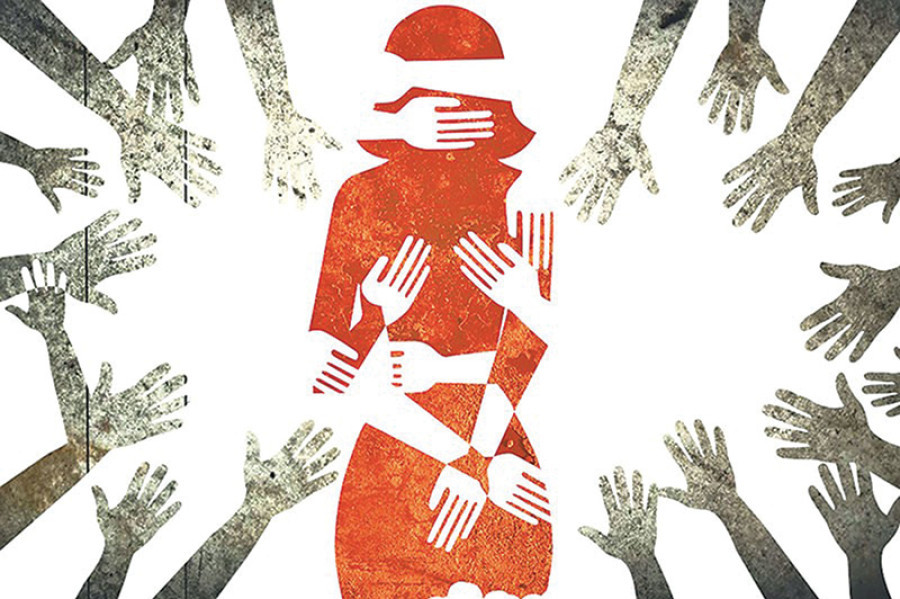Editorial
Shunned and silenced
The long struggle of the women who were sexually assaulted or raped during the conflict period continues.
Despite the many constitutional and political initiatives taken by the Nepali state to improve the lot of Nepali women of late, they are still very much second-class citizens. This starts with the constitutional provision that makes it difficult for a Nepali woman married to a foreign man to pass on her citizenship to her children, while a Nepali man married to a foreign woman will have no such problem. Our public and private workplaces remain male-dominated, as are higher echelons of our bureaucracy and political parties. Even more concerning is the constant physical and emotional torture hundreds of thousands of Nepali women endure at the hands of their male companions. These multiple struggles of Nepali women are just about perfectly captured in the sorry plight of victims of rape and sexual violence from the conflict period. During the decade-long insurgency, many women were raped and physically assaulted, mostly by the security forces. Some of them were accused of being Maoists and raped in captivity for years. Yet, over a decade and a half since the war ended, they continue to struggle for justice. Forget justice. They are not even in a place to vent their suppressed anger and frustration.
Among the 63,700 complaints registered at the Truth and Reconciliation Commission, a transitional justice body, 314 relate to rape or sexual violence from the insurgency-era. But this is just a fraction of the number of victims, most of whom have registered no complaints fearing social stigma and reprisal. The National Association of Conflict Rape Victims, an informal group of the victims of sexual crimes from the conflict period, has 500 active members while 2,500 are in regular touch with the group. The stories these women tell are heart-rending. Many of them are now married, with their husbands having no clue about their traumatic past. The women want to open up to their loved ones, but then fear being shunned. These social taboos have also added to the difficulty of health screening of the women, many of whom have suffered damage to their reproductive organs. Still, of the 300 women from three provinces screened so far, 11 percent have had their uterus removed, while another 6.22 percent need immediate removal. Around 70 percent of the screened women who need follow-up check up have one or more long-term reproductive health-related complications.
Besides voices from inside the country, even the United Nations Human Rights Committee has spoken in these women’s favour, calling on Nepal to investigate, prosecute and punish the men involved in the rapes and to provide the victims full reparation, including reimbursement of the medical expenses incurred. Yet all such pleas have been ignored. Why is the Nepali state so badly failing over half of its citizens? Despite all the proposed progressive changes, why cannot these survivors of the most heinous crimes even freely speak of their trauma and seek justice? The women victims say one step that would bring them some relief is immediate amendment of the Enforced Disappearances Enquiry, Truth and Reconciliation Commission Act. They welcome a provision in the bill that ensures reparation as a right and gives them three months to register complaints from the day of enactment of the amendment. For these women who have already suffered so much, the Act’s prompt endorsement is the least an otherwise indifferent state could do.




 9.6°C Kathmandu
9.6°C Kathmandu














